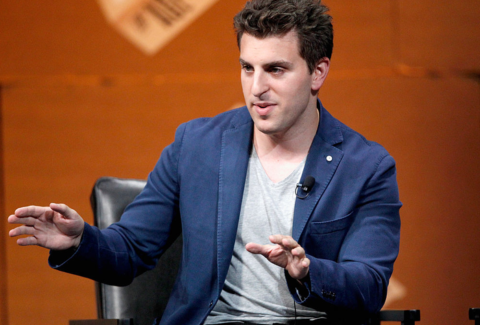So, do masks really work?
Welcome to the sixth edition of ‘3-2-1 by Story Rules‘.
A newsletter recommending good examples of storytelling across:
• 3 tweets
• 2 articles, and
• 1 long-form content piece (podcast or book)
Each would be accompanied by my short summary/take and sometimes with an insightful extract.
Let’s dive in.
🐦 3 Tweets of the week

That loooooong tweet from the co-founder of the VC firm a16z makes the provocative argument that we don’t need to worry about AI taking away jobs, because AI/Tech is already ‘illegal’ in several people-intensive sectors like healthcare and university education.

This ad of an Australia based beer company is cheeky in its ‘exclusive’ positioning. As an IPA aficionado, I concur.

You can never go wrong with exaggeration in humour – but it’s the details which make it funny!
📄 2 Articles of the week
a. Why Are We Still Arguing About Masks? by Derek Thompson
When the most basic assertions – one that we all took as the gospel truth – are contested so vigorously, one might wonder – what can we still believe in? Derek Thompson does a masterful job of parsing through the evidence and coming up with a nuanced take. I liked this extract:
My advice in navigating this mess is: Do not trust people who, in their handling of complex questions with imperfect data, manufacture simplistic answers with perfect confidence. Instead, trust people who allow for complexity and uncertainty. Trust people who change their mind when the evidence changes. Trust people who, when they say “Believe the science!” put their trust in science, with a small-s, which is the dynamic reevaluation of complicated truths, rather than SCIENCE, in weird caps-lock font, which has come to mean the faith that for every random political position, there exists an official-looking study to permanently justify it.
b. The Luckier You Are The Nicer You Should Be by Morgan Housel
We are blind to our own privilege.
When most people experience bad times they consider it risk – the idea that a force outside of their control influenced outcomes more than anything they did intentionally.
Rarely is that logic turned around.
Because what’s the opposite of risk? Luck. And what is luck? The idea that a force outside of their control influenced outcomes more than anything they did intentionally.
It’s the same thing as risk, just in the other direction.
📖 1 long-form read of the week
a. Doing What Matters in Times of Stress: An Illustrated Guide by the World Health Organisation
File available here: WHO Doing What Matters in times of stress.pdf
This lovely 132-page e-book on how to cope with stress by the WHO was recommended by Jai Prakash Mahich (a batchmate from IIMA) who felt that in this era of mass layoffs and job uncertainties, it is important to be aware of our stressors and take care of ourselves in a deliberate and kind way.
I loved the illustrations and the story-like treatment to this serious topic.
That’s all from this week’s edition.
Photo by Vera Davidova on Unsplash







